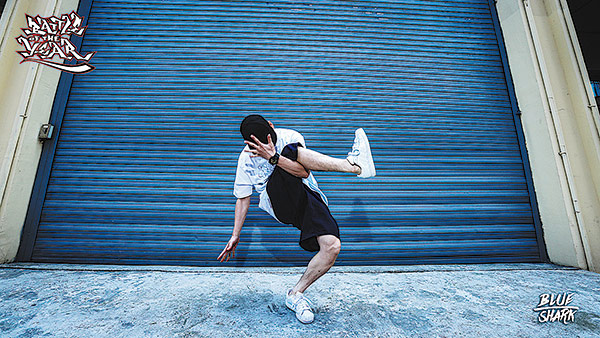China's dancers get set for their big break
Pei Dongguang, aka B-boy Kim, poses during Battle of the Year 2017 China qualifier in Chengdu, Sichuan province, where he was a competition judge. [Photo provided to China Daily]
B-boy Shang Xiaoyu, born in 2000, attended the Buenos Aires 2018 Youth Olympic Games and the first WDSF championship in 2019 in Nanjing.
Competing in Paris, he could clearly see his own progress, which, as he puts it, proves that Chinese competitors are learning in the proper way and constantly improving.
The scoring method, the Trivium Value System that the championship applied, rates the breakers' physical, artistic and interpretive qualities, usually referred to as body, mind and soul by insiders. The score for each of these three values are split into two subcomponents, known as cross-faders. All of these criteria interlink and influence one another, and the judging system is based upon each judge balancing each of the cross-faders into positions that represent the different weight of quality in each category between the competitors. The scores are submitted after each round.
The system that will also be used for the Olympic Games requires comprehensive abilities, which can be very demanding for breakers, Pei says, adding that he used to be concerned that breakers would have to sacrifice part of their respective personalities to compete at the Olympics, or be too overwhelmed to fully enjoy the competition.
He was largely relieved, though, seeing many breakers he appreciated, not just competitors but also coaches, are proud to battle or teach on behalf of their country. He realized the Olympics are providing the breaking community with a larger platform to show the attraction of the genre, promote exchanges, gain attention and support, and eventually develop the culture.






 play
play